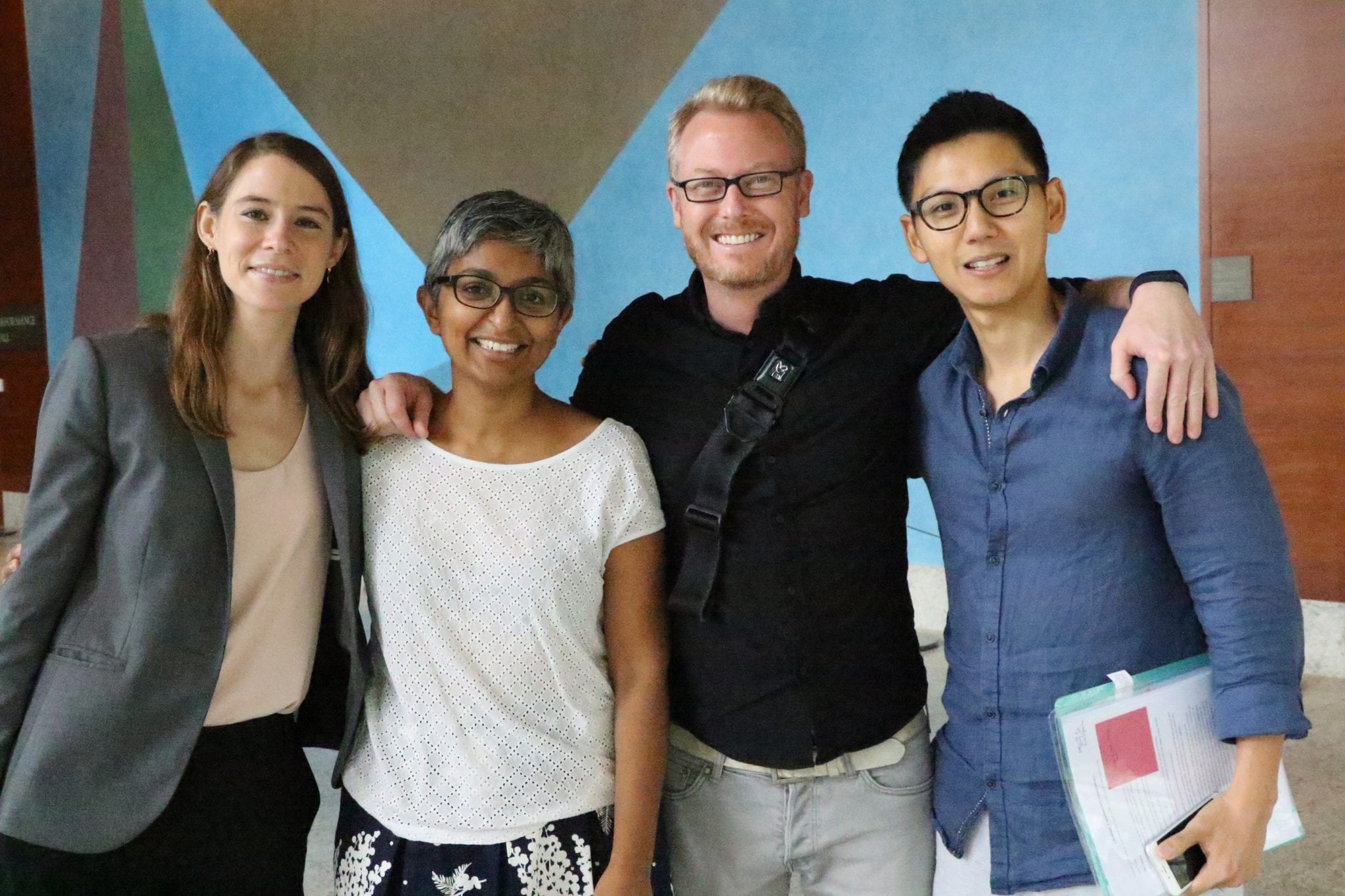Faculty members at Yale-NUS learn from one another at Faculty Mentoring Sessions
 Associate Professor of Professor of Social Sciences (Sociology and Public Policy) Anju Paul (second from left) with colleagues. Image provided by Yale-NUS Centre for Teaching and Learning.
Associate Professor of Professor of Social Sciences (Sociology and Public Policy) Anju Paul (second from left) with colleagues. Image provided by Yale-NUS Centre for Teaching and Learning.
Faculty members at Yale-NUS College are talented and passionate teachers and researchers who hail from all around the world across diverse fields.
For many junior faculty members, easing into a new career or teaching appointment at the college can be a potentially daunting task. Just like how students have Residential College Advisors (RCA) to turn to for college guidance, there is also a nurturing support system for new faculty members on campus.
Instead of traditional academic departments, Yale-NUS faculty members are grouped into three broad divisions: Social Sciences, Humanities and Sciences. Across the divisions, there are both junior and senior faculty members with differing years of teaching or research experience. In each semester, specially curated Faculty Mentoring Sessions are organised for senior faculty members to help their junior colleagues grow and develop. The initiative was first started by Dean of Faculty and Professor of Social Sciences (Public Health and Psychology) Jeannette Ickovicks when she was a visiting faculty from Yale University. Since then, Associate Professor of Social Sciences (Sociology and Public Policy) Anju Paul has taken over and facilitated the sessions.
Assoc Prof Paul explained that each Faculty Mentoring Session is created around a specific theme that is relevant to all faculties across the different divisions. In Semester 1 of Academic Year 2019/2020, some of the themes revolved around topics of time management, smart teaching, imposter syndrome in academia as well as teaching and writing strategies. Some of these topics were created based on her own experiences faced as a junior faculty member while others were aligned to feedback received from the participants.
“At each session, there’s always a nice, convivial atmosphere where faculty members mingle and connect over some food. After the mingling, we will gather in a circle and I will give a brief synopsis of the topic at hand. I typically design various small group activities around the topic so that it is not just me talking all the time, and there is plenty of space for people to share their concerns, issues, suggestions. I try to make each of the sessions I run very practical, so I am always giving out handouts with tips to follow, worksheets to fill out, or recommending books people should read,” she shared.
For one of the participants, Assistant Professor of Humanities (History) Wannes Dupont, the session on ‘Imposter syndrome and Establishing Authority’ stood out to him. As outlined in a Time article, a person suffering from imposter syndrome is one who believes that they are not qualified for their work. This could be in spite of their achievements and successes.
“I have read about imposter syndrome before but I found it very helpful to talk about it with other new colleagues. In fact, it was probably the first time I had talked about it with anyone inside academia at all. It is critically important that we deal with this difficult matter, which haunts what seems to be a great many of young academics, and which really only people who are also inside academia can really relate to,” he said.
Asst Prof Dupont also commented on how he appreciated the friendly and warm sessions where faculty members “feel they can leave the highly performative environment for a short while”.
Echoing his thoughts, Assistant Professor of Science (Environmental Studies) Eunice Tan said she found it helpful to have a platform where she could simultaneously learn from her fellow junior faculty peers on how to manage their challenges as well as from experienced faculty members like Assoc Prof Paul.
“When I was a junior faculty member, I found my time to be rather lonely, isolating and anxiety-ridden,” Assoc Prof Paul recalled. To combat such challenges, she emphasised the importance and value in having such a programme at Yale-NUS College, noting that it functions as a safe space for new faculty members to share their concerns and receive constructive feedback.





